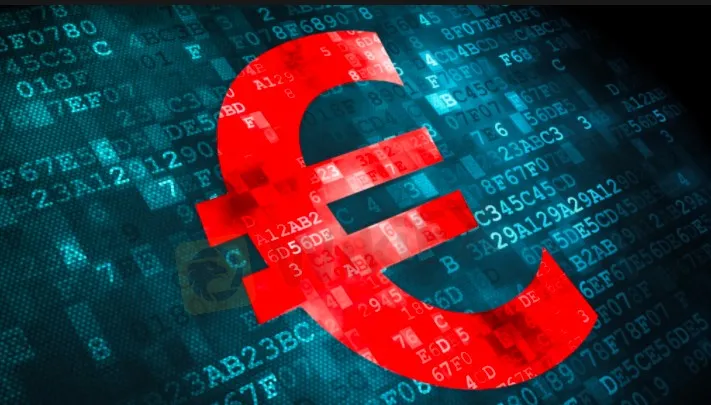简体中文
繁體中文
English
Pусский
日本語
ภาษาไทย
Tiếng Việt
Bahasa Indonesia
Español
हिन्दी
Filippiiniläinen
Français
Deutsch
Português
Türkçe
한국어
العربية
Digital Euro Could Be Greener Than Bitcoin
Abstract:Digital Euro ‘Should Not Be Taken for Granted’
DIGITAL EURO AS A LEGAL TENDER IN THE EU AREA IS A LIKELY OUTCOME, SAYS TOP ECB OFFICIAL
Fabio Panetta said that in the next 24 months, the ECB will examine how it can make the euros digital version a legal tender.
Fabio Panetta – Member of the Executive Board of the European Central Bank – revealed that the digital version of the euro might become a legal tender inside the European zone.
Digital Euro ‘Should Not Be Taken for Granted’
As Bloomberg reported, the Italian economist and member at the ECB – Fabio Panetta – hinted about the initiative during a panel discussion in Helsinki, Finland. He asserted that if the European Central Bank proceeds with its efforts of launching a digital currency, the new form of money will have all chances to become legal tender inside the borders of the EU.
Panetta added that the authorities will thoroughly examine the endeavor in the next two years. Nonetheless, the Italian opined that achieving such a move “should not be taken for granted,” and the financial institution must be extra cautious.
Last week, he opposed the argument that the digital euro will be “redundant” amid other alternative currencies as the ECB will aim to make its CBDC cost-effective and guarantee its usability. The latter is vital as it could provide for more widespread adoption among the general population. The Italian economist added that the central bank digital currency will be “attractive enough” to capture societys attention.
During the event, Elvira Nabiullina – the head of the Bank of Russia – agreed with Panetta about how a central bank digital currency should look like.
A few months ago, she opined that CBDCs, working under government control, will represent the future of the financial network. On the other hand, she is a fierce critic of private digital assets, which in her opinion, are highly volatile, and investors could lose “colossal sums” if they deal with them.
Digital Euro Could Be Greener Than Bitcoin
Earlier this year, the European Central Bank highlighted its plans to launch an investigation phase of a digital euro project that will go on for 24 months. Within the testing period, the ECBs research department will “aim to address key issues regarding design and distribution” as the digital version of the euro “must be able to meet the needs of Europeans.”
In addition, the CBDC should “prevent illicit activities and avoid any undesirable impact on financial stability and monetary policy.” Christine Lagarde – President of the European Central Bank – said the financial product should be “the safest form of money.”
Last but not least, the ECB promised that the digital euro‘s energy consumption would be “negligible” compared to bitcoin’s. It is worth mentioning, though, that central bank digital currencies and the primary cryptocurrency are significantly different assets.
A CBDC is a digital version of a nation‘s fiat currency where the Central Bank is still in complete control. It lacks any sort of decentralization as there is a single authority that’s shaping the monetary policy and regulation.
Bitcoin, on the other hand, is the complete opposite, which is why many believe that the emergence of a CBDC could push people towards BTC even more.


Disclaimer:
The views in this article only represent the author's personal views, and do not constitute investment advice on this platform. This platform does not guarantee the accuracy, completeness and timeliness of the information in the article, and will not be liable for any loss caused by the use of or reliance on the information in the article.
Read more

These Are How Millionaire Forex Traders Think and Act
It's no secret that in the world of trading, the most difficult thing is realization. Everyone can expect to be a successful trader, a trader who wins a lot of money, to a millionaire trader. But all this could be a dream if they didn't try to chase it.

How to Register Forex Trading, 5 Easy Steps to Follow
Foreign exchange has been developed and turned into something big in all of society. Not just office employees, but also students, kids in school, housewives, and even the unemployed.

Pip In Forex Trading, The Relation to Profitability
Pip or price interest point or percentage in point is a measurement tool associated with the smallest price movement any exchange rate makes. Usually, there is four decimal places used to quote currencies.

Euro Drops to 2-Decade Low on Recession Fears
Worries about how the European Central Bank will react also undermined sentiment after Germany's Bundesbank chairman Joachim Nagel lashed out at the ECB's plans to try and protect heavily indebted countries from sharp increases in lending rates.
WikiFX Broker
Latest News
High-Potential Investments: Top 10 Stocks to Watch in 2025
US Dollar Insights: Key FX Trends You Need to Know
Why Is Nvidia Making Headlines Everywhere Today?
Discover How Your Trading Personality Shapes Success
FINRA Charges UBS $1.1 Million for a Decade of False Trade Confirmations
Bitcoin in 2025: The Opportunities and Challenges Ahead
BI Apprehends Japanese Scam Leader in Manila
Big News! UK 30-Year Bond Yields Soar to 25-Year High!
SQUARED FINANCIAL: Your Friend or Foe?
Join the Event & Level Up Your Forex Journey
Currency Calculator






